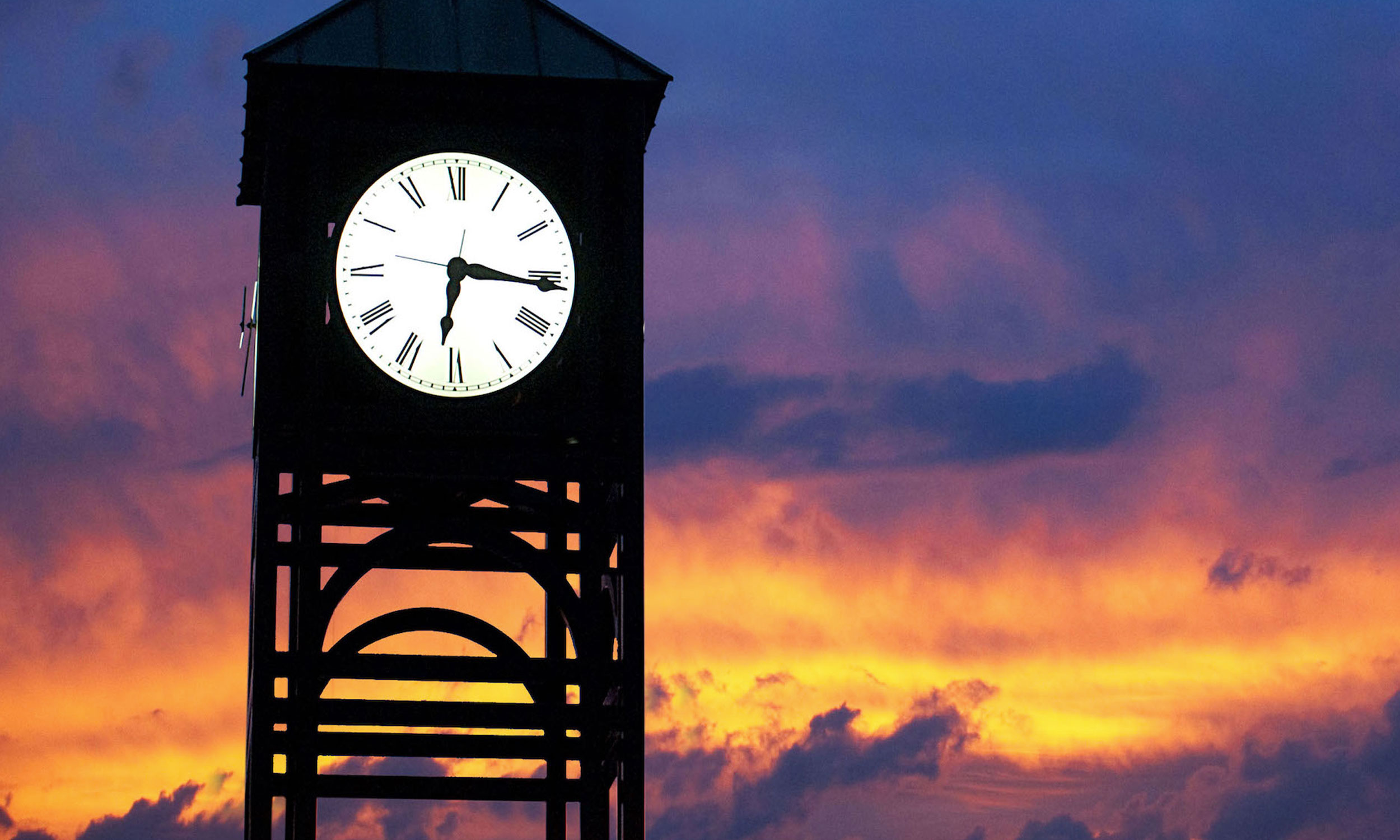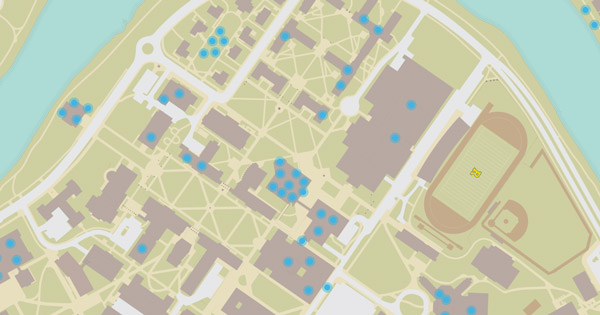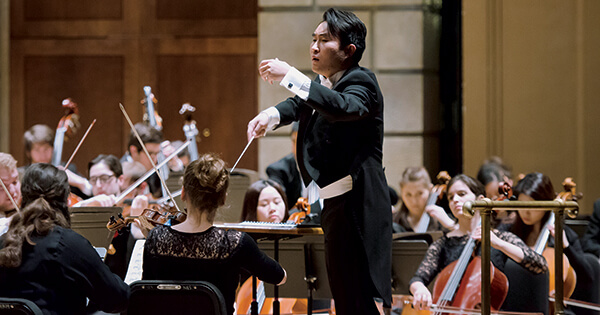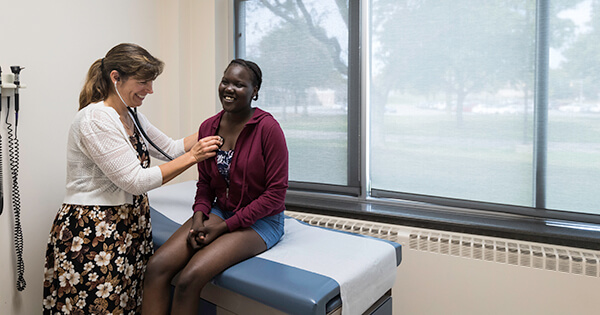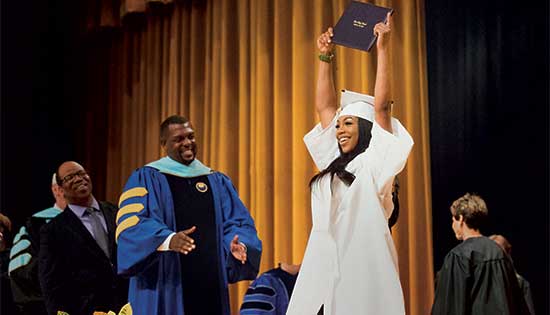Big library, big data
Librarians integral to data science initiatives
As the University of Rochester pursues a $50 million initiative in the new field of data science, practitioners will rely on work University librarians have long done—and will continue to do in new ways, in collaboration with data scientists.
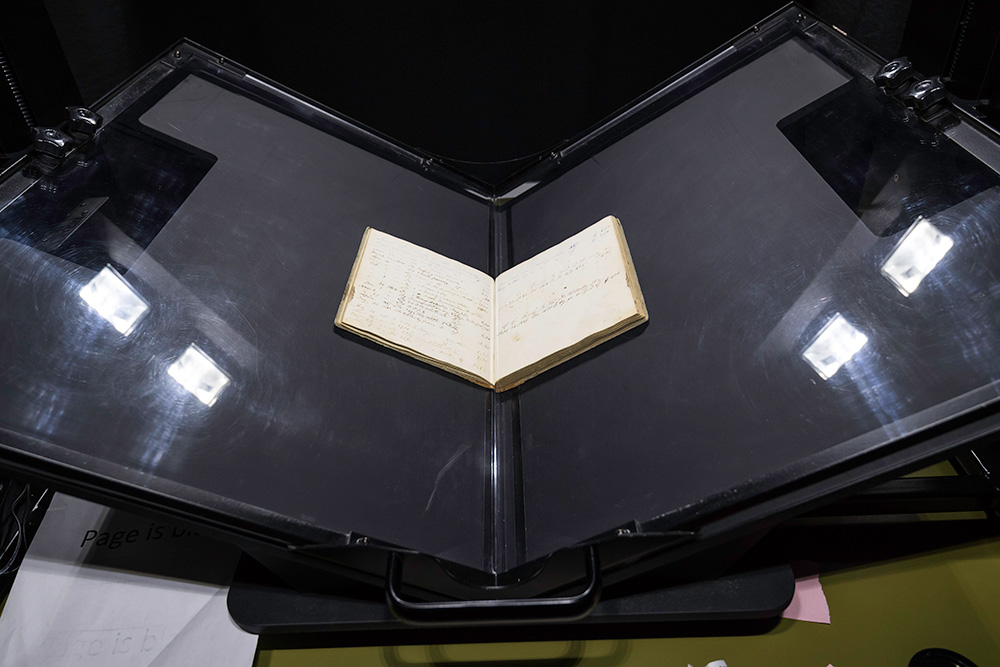
Digital format specialists prepare to digitize a manuscript from the Universalist Church for a scholar request at the Digital Scholarship Lab. (University photo / J. Adam Fenster)
“Libraries have been managing data for centuries,” says Marcy Strong, head of metadata service at River Campus Libraries. Be it cataloging clay tablets, sorting medieval manuscripts, or documenting online resources, libraries have long been in the business of helping users and researchers find what they need by creating metadata, or a systematic way of describing the various items in their collections.
Today, most libraries contribute their bibliographic data to WorldCat, a massive catalog shared by libraries around the world with more than two billion holdings. “Such a major initiative,” notes Strong, “could have become possible only thanks to the development of consistent metadata standards.”
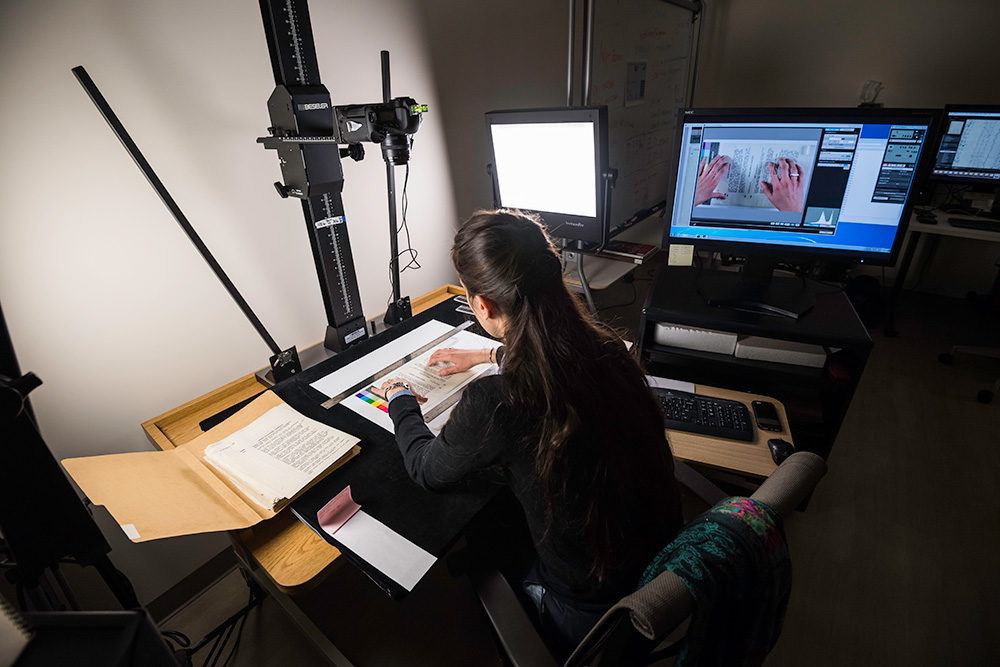
Doctoral student worker Clara Auclair uses computers and a copy stand to digitize a collection of papers from New York governor Thomas Dewey. (University photo / J. Adam Fenster)
Librarians’ expertise in data standards, tools, and models, makes them integral to enterprises in data science. Librarians collaborate with researchers in creating new models that support the curation and visualization of so-called “big data,” as well as recommend tools and strategies for data analysis. Librarians also advise researchers on data management planning, and help identify metadata standards and methods for capturing and recording data to meet grant guidelines.
The newly created Digital Scholarship Lab, housed in the Humanities Center in Rush Rhees Library, is designed to give researchers the tools and software they need to develop new methods of analyzing a wide range of data.
“We’re engaged in a diverse range of scholarly projects, from mapping scholarly networks to advising students in capstone projects for digital media studies or engineering,” says Nora Dimmock, assistant dean and director of the lab. “We help students learn how to reconstruct historic structures in 3D modeling software or develop digital platforms for organizing field research. The lab team members are always available to help students and faculty think through their research questions. They are there to discuss how digital tools or methodologies might provide new insight.”
—Jeanette Colby and Yisrael Levin, May 2017


